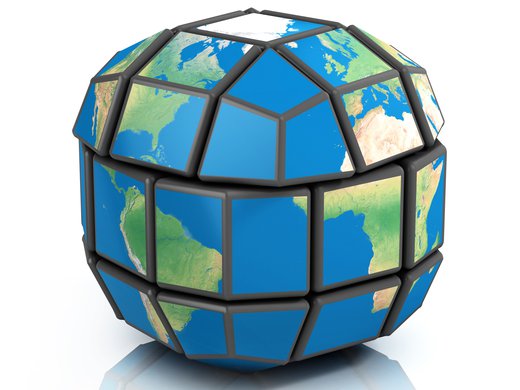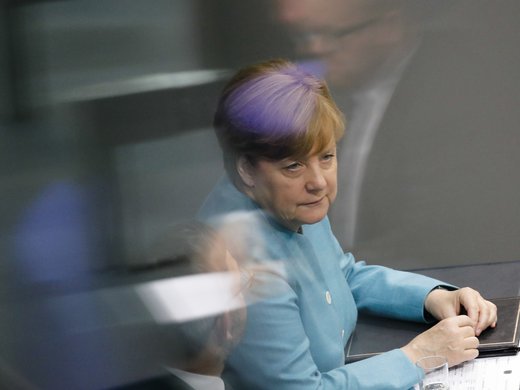The Hamburg Group of Twenty summit is likely to be the most tension-filled G20 meeting ever.
At the 2014 Brisbane summit, Russia was isolated. But this time, in the wake of the Taormina Group of Seven meeting in May and US President Donald Trump’s announcement that he intends to take the United States out of the Paris climate agreement, it’s America that’s on its own.
Trump can perhaps lean on UK Prime Minister Theresa May, who has isolated herself from the rest of Europe and did not want to join the other EU leaders in a declaration against Trump’s climate stance.
While the United States and the United Kingdom were the main architects of the post-1945 order, with the creation of the United Nations systems, they now appear to be pioneers in the reverse direction, steering an erratic, inconsistent — and domestically highly contested — course away from multilateralism.
This turn away from multilateralism has been accompanied by a rejection of expert or scientific opinion, and the proliferation of rumours, doubts and falsifications. Fake news seems to be ubiquitous.
A striking part of the development in 2016 in American and British politics was a backlash against “experts” or “technocrats.” Experts who warned against the costs of Brexit were the major target of the successful political campaign to take the United Kingdom out of the European Union. The campaign against economists was built around the simple proposition that the economics profession had failed to warn against the possibility of the 2007-2008 financial crisis. Likewise, Trump seemed to be making an analogy with climate science when he complained that scientists were not that good at predicting the weather.
Economists and climate scientists may not be the last to undergo public scorn. Medical experts and doctors might well be the targets of the next campaign of skepticism. As with the claim that economics went wrong, there might be an apparently strong case for criticism. The epidemic of middle-aged mortality in the United States is fuelled in large part by prescription opiates: painkillers authorized by doctors without regard to the long-term side effects. Over-prescription of antibiotics in many countries is also leading to increased mortality. Meanwhile, drug-resistant strains of bacteria flourish.
It is only by restoring a rational basis for information and decision that stability will return. So when it comes to formulating a new vision for the world, the international community should start by rethinking how it can act, and how it should inform people about their long-term interests and their overall well-being. Fortunately, the instruments are at hand, in the form of massively available detailed data. But the new vision will require a different sense of purpose.
Just as the postwar order was built around an institutional vision fundamentally formulated by two countries, the United States and the United Kingdom, it depended on the intellectual tool that those countries had used to win the war: macro-economic indicators — above all, gross domestic product. GDP was an enormously important and successful planning instrument: it allowed the measurement of overall levels of investment, and of consumption. In a major military conflict, the key consideration was how to reduce civilian consumption, so that normal demand would not divert resources away from the requirements of military production. GDP still worked in the Cold War as a tool of planning. But today it should really be put aside, along other now-obsolete and unhelpful tools.
As tools go, GDP is slow. It can be used as a very crude measure of how well countries are doing, as a simple quantitative test of development success. At the moment, small differences in growth rates are treated as if they are evaluations of a nation’s entire performance: so, for example, France is weak, because it grew at a 0.5 percentage point less than Germany did in 2016 (whereas in the early 2000s, it was growing faster than Germany). But GDP takes time to calculate, and the calculations are only provisional.
The enormous amount of real-time data that is available means many more sophisticated ways of judging policy success are possible.
First, we can know, and need to know, not just about national GDP estimates, but also about how production and welfare are developing in specific localities. Detailed knowledge about the economy has already been used in effective policy making. Such knowledge was, as Sebastian Mallaby’s important biography of Alan Greenspan shows, what initially gave the chair of the central bank an informational advantage over more conventional economists in the Federal Reserve. After the reforms of revolutionary and statesman Deng Xiaoping, an effective tool in Chinese policy making was the use of local production information, to reward or punish local policy makers and party officials. A greater sensitivity to regional production differentials might have helped in preventing the political polarization of different parts of the United States or the United Kingdom — a polarization that played a major part in the generation of radical discontent.

Second, a multi-dimensional (and multidisciplinary) approach to activity is needed. Economic data on its own does not necessarily speak for itself. Medical information on population groups should accompany purely economic data in order to give a better and more comprehensive assessment of well-being. Digital technology might indeed extend this information: pulse rates, blood pressure, blood sugar levels and hours of sleep might all form part of a more holistic database, just as information about Google searches about health matters can be usefully aggregated by locality.
Third, modern techniques can make this specific information more widely available, and above all show how quite disparate developments may be associated. The large-scale application of algorithms can seek out connections and linkages that would previously have been missed. Does better health lead to sounder economic development, with greater levels of satisfaction? What are the policy approaches that produce success in one district, but not in another?
Inclusive and sustainable globalization can only come from informed globalization. Thinking about improving the reliability and the dissemination of data is a way of building a greater inclusiveness and, at the same time, of lessening the grip of fake news.
In the wake of the US and UK retreat from international leadership, it is tempting to think about new leadership. There have been robust defences of globalization from elsewhere, from Canada, France, Germany — and also from China. But unless globalization can be linked with real gains to well-being — and that link can be demonstrated effectively — the process will be precarious, contested and potentially reversible.



